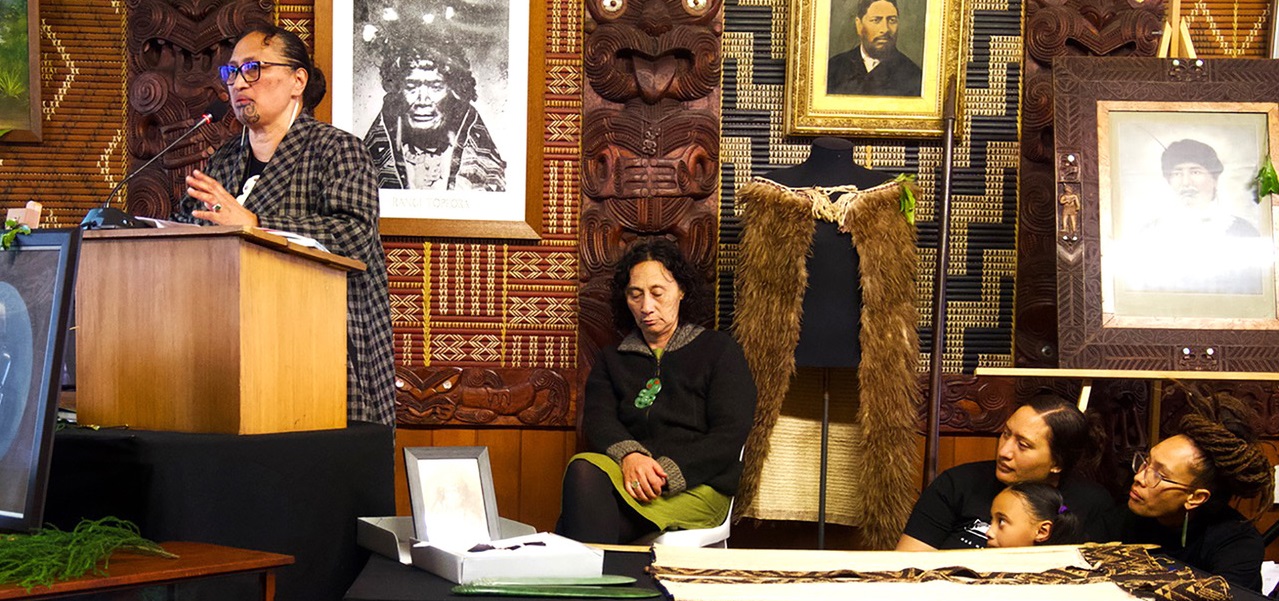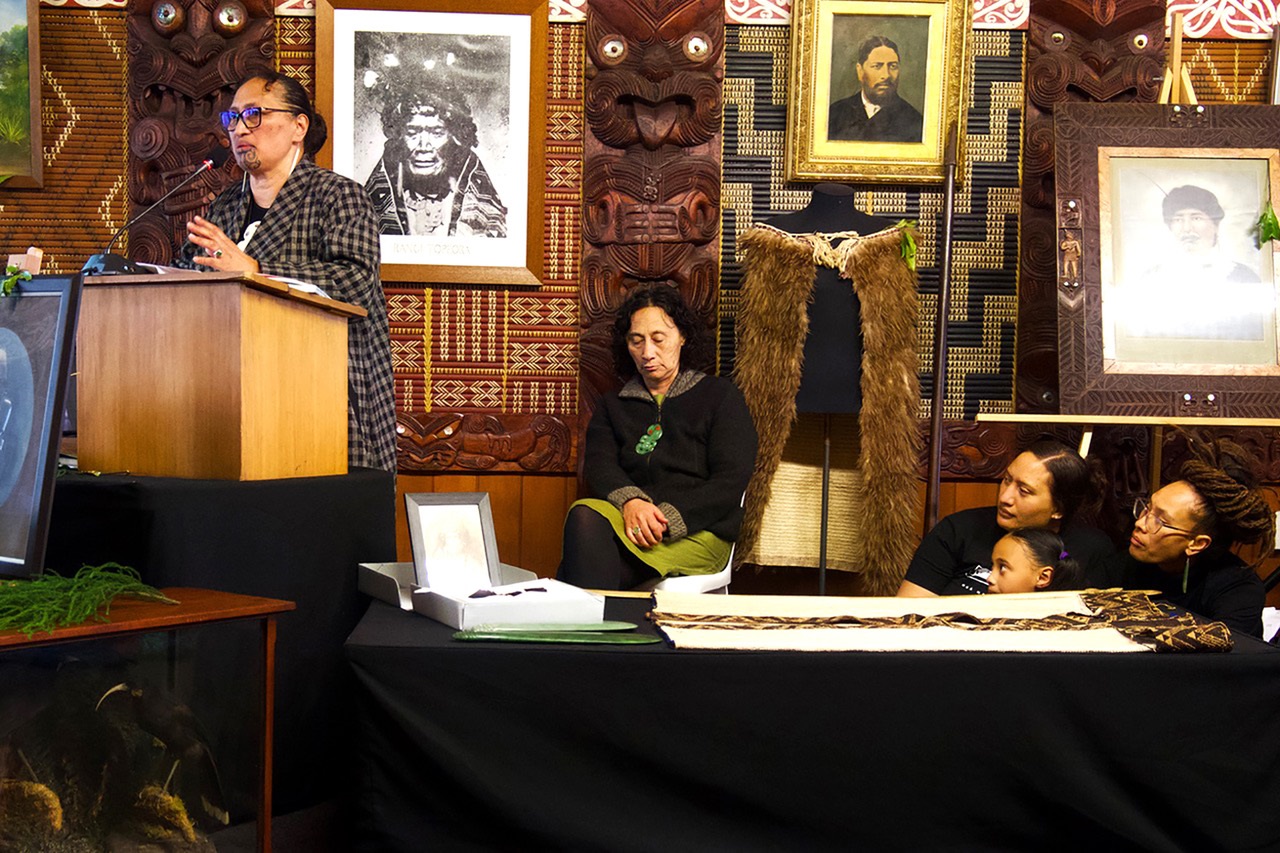
Ngāti Maiotaki spokesperson Arini Loader’s aspiration was simple: “We want our stuff back.”
Arini was talking to the Waitangi Tribunal on the last day of the hearings at Raukawa Marae in Ōtaki from October 2-6.
During the final session of the hearing, presenters outlined their aspirations on resolving the treaty grievances, based largely around land being taken through actions of the Crown.
Arini began with the statement: “I riro whenau atu, me hoki whenua mai. [Land was taken so land should be returned].” She said the dream for her people was for them to successful in the areas of their lives, “. . . to be strong in te reo Māori me ōna tikanga, to be healthy, well educated, financially successful, to be environmentally conscious, to be actively engaged in their health and well-being, spiritually, mentally, physically.”
She was clear Māori wanted to live on their own lands and wanted control of every aspect of their lives. She wasn’t speaking about Māori rights but basic human rights. Referencing the Human Rights Commission (Te Kāhui Tangata Tika) Arini said: “The types of human rights include justice, right to equity, life, liberty, a right to a decent home. Ngāti Raukawa are still waiting for these rights to be substantially delivered. . . .”

Beatrice Mari Ropata-Te Hei presents evidence supported by her whānau, from left including cousin and co-claimant Heni Wirihana-Te Rei, daughter Arapera Titihuia Te Hei, mokopuna Te Taiawatea Reuben and niece Donna-Mari Ngamiro Ropata.
Photo Whare Akuhata
Ngāti Huia ki Katihiku spokesperson Hēni Wirihana-Te Rei spoke while weilding the paraoa (whalebone) taiaha of her ancestor Rangitopeora, who signed the Treaty of Waitangi. For her aspiration she reached back to another tūpuna, Te Rei Parawhanake, who in 1873 wrote about land being taken, and urged that the land be retained.
She concluded: “My aspiration is we maintain our land and the aspiration of our following generations like Maioha and our mokopuna is to maintain contact with the whenua . . . My aspiration is the āhi kā [those living on the land] flames burn bright and with health and mauri ora, [and that] we retain our lands. . . .”
Ngāti Maiotaki spokesperson Denise Hapeta referred to the decimation of the ūkaipō – traditional and sustaining home lands of Ōtaki. She seeks recompense from the Crown to ensure their ūkaipō could be rebuilt to her people’s own designs.
Housing was a key aspiration for other speakers, including Wai 1626 claim kaumātua Hawea Tahiwi, who also called for the return of land. He wanted the establishment of a Māori bank to assist in developing Māori customary land.
Ngāti Pare spokesperson Hara Adams wanted the return of the land given to the Church Missionary Society that comprises Te Wānanga o Raukawa and the adjoining farm. It is currently owned by the Ōtaki and Porirua Trusts Board.
Wai 1626 co-claimant Deanna Rudd remarked on Mana Wāhine and was impressed by the leadership of wāhine after the passing of Te Waari Carkeek, the original claimant of Wai 1626, who had led the Wai 1626 claims from the start.
The hearing is for one of the larger Treaty of Waitangi claims to be heard throughout the country.
The tribunal is due to return to Ōtaki in late November for the Ngāti Kapu and Baker whānau treaty claims hearing.
OTHER STORIES

